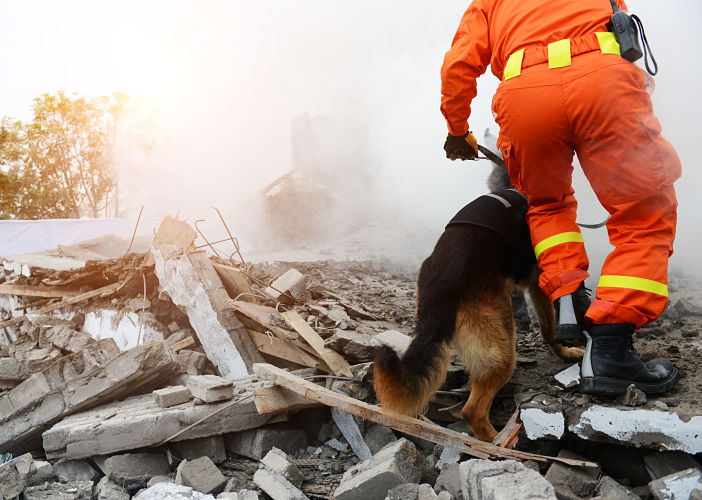Four hundred humanitarian emergencies kill 100,000 people and affect a further 120 million people each year. These disasters occur in both the global south as well as the global north. Humanitarian emergencies not only destroy infrastructure but they also destroy governance structures as well as social structures. Recognizing this, the international community provides more than USD24 billion every year to assist those affected to rebuild and reconstruct their lives.
This aid is delivered through various modes and can include bilateral aid, multilateral aid, direct aid through personal/community networks as well as aid fundraised by international non-governmental organisations (INGOs). Indeed, it is often staff (generally locally engaged staff initiated, soon followed by internationally deployed staff) of INGOs that are amongst the first to respond to these events. These humanitarian workers carry significant responsibilities in terms of their institutions’ response to these emergencies and improving the lives of those affected. Indeed, for over 150 years, these international agencies have existed to respond to the misery wrecked by such events. Motivated by the humanitarian spirit to help fellow humans in need, the complexity and size of responses required has propelled these agencies to professionalise the work that they undertake. This professionalization has been driven by and embraced by agencies who see this as increasing the effectiveness and impact of their work for affected communities.
Increasing the professionalization of leaders and managers of these responses is a critical need to ensure the most effective recovery in communities as well as use of resources. As the humanitarian sector continues to professionalise, greater focus on the skill-set needed by humanitarian workers responding to these events is needed.
Universities have in recent times begun to provide both formal qualifications in humanitarian assistance as well as professionally focused short courses. It is possible that the INGO sector could work closely more with tertiary institutions to develop the curriculum that meets the needs of this sector as it continues its path of professionalisation.
As the 2017/18 Fulbright Scholar in Non-Profit Leadership, I was able to spend time in the United States of America to better understand how the humanitarian sector in that country works. During this time, I interviewed numerous humanitarian workers. Over the course of these interviews, it became clear that ‘on-the-ground’ experience is vitally important to people gaining entry to this sector. It was also apparent though that academic qualifications were increasingly becoming a core requirement for employment. For universities, it is necessary to understand the value of experience as well as academic study. It is important though that such work-integrated-learning is embedded fully within the course curriculum so that students undertaking this learning are gaining skills and knowledge explicitly linked to their course level outcomes.
As with other sectors, academic training forms a central part of any increasing professionalisation. Whether it be in allied medical fields, education, commerce and so forth, academic learning and credentialing is core to the systematising and codifying knowledge, standards and best practice.
On the basis of these interviews, postgraduate training in humanitarian sector should be informed by:
- International experiences that are supported and integrated into wider curriculum
- Focus on soft-skills around communication, teamwork and safe work habits
- Language acquisition opportunities
- Provide courses with technical skills around monitoring and evaluation
- Demarcate courses for those at the start of careers to those in mid-career or transitioning.
This research, supported by the Origin Foundation through the Australian-American Fulbright Commission, has sought to better understand what skills are required by professional humanitarian workers and how the sector more widely can secure the supply of appropriately qualified and suitably equipped individuals required. Working together with universities, the humanitarian sector could develop postgraduate courses that take into account the unique features of this profession. With relatively few courses currently available, it would be possible for agencies to support universities embed relevant work-integrated-learning, soft-skills, language acquisition, and monitoring and evaluation skills into their curriculum and for universities to modify courses to suit both commencing and mid-career humanitarian workers.
This is vital as it will enhance the response to the hundreds of devastating disasters that kill thousands of people each year and directly affect tens of millions more. We owe it to these communities to be as professional as possible in our responses and this involves ensuring university training is relevant and appropriate.


